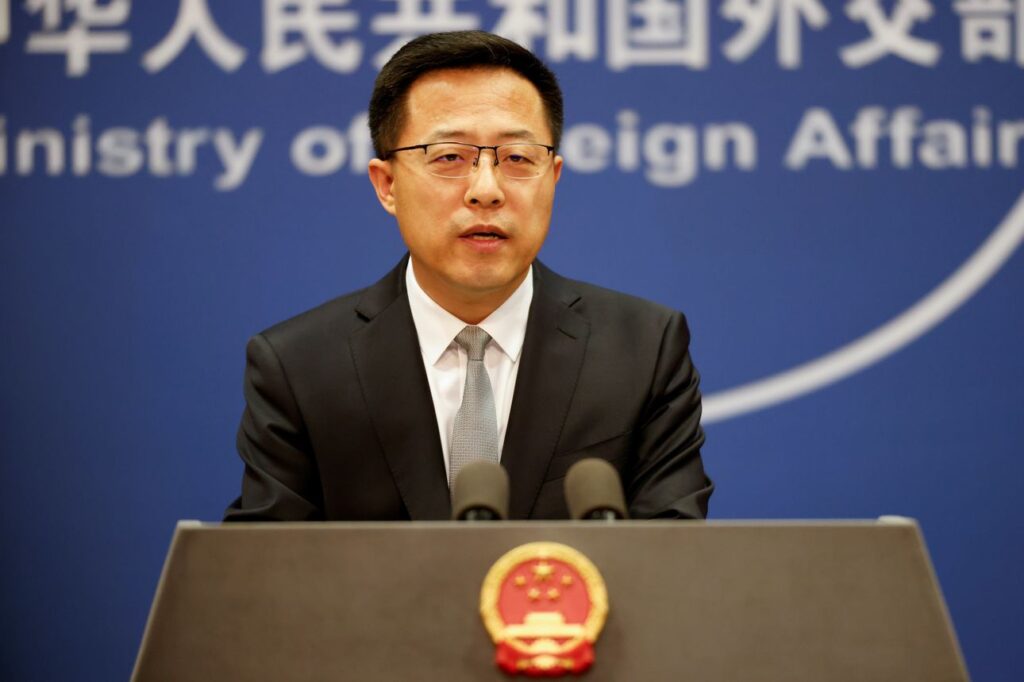
Beijing has developed a reputation for blocking imports from countries it wants to punish. Australian wine became a target last year. Now China is punching back at Lithuania, which recently allowed Taiwan to open a representative office in Vilnius. But here’s the new twist: China is holding up not only Lithuanian imports, but all imports that include Lithuanian parts. The effects are rippling across Europe.

In 2020 Lithuania exported goods worth $350 million to China—an increase over previous years but peanuts in overall trade. Lithuania has long imported far more from China than vice versa; last year, about four times as much. So Lithuania’s government perhaps calculated that the country’s economy could handle whatever retaliation China inflicted for the gesture to Taiwan.
But the Lithuanians probably didn’t anticipate a Chinese attack on global supply chains. “We now know of many cases where imports from Lithuania and the EU are blocked in Chinese ports, and the number is increasing every day,” Valdis Dombrovskis, the European Union’s trade commissioner, told Germany’s Die Welt newspaper shortly before Christmas. “Apparently the Chinese customs authority doesn’t process goods from other EU member states if they contain parts made in Lithuania.”
Chinese Foreign Ministry spokesman Zhao Lijian has denied that Beijing is blocking imports containing Lithuanian components, but goods are still stuck or severely delayed, with volumes growing rapidly. German automotive suppliers have said their cargo is languishing in Chinese ports.
China’s suspension of salmon imports from Norway after a Chinese dissident was awarded the Nobel Peace Prize, and of Australian wine after Canberra called for an investigation into the origins of Covid-19, were serious but harmed only those countries. Targeting global supply chains to punish a country is an extremely potent weapon. It’s one that China—a power player in the global economy—can deploy in ways that the Soviet Union never could.
The punishment “is putting multinational companies under pressure. Now they’re trying to push the Lithuanian government to rename the Taiwanese office,” Vidmantas Janulevicius, president of Lithuania’s industrialists’ association and chairman of the solar-panel manufacturer BOD Group, told me. The German-Baltic Chamber of Commerce has warned Vilnius that German subsidiaries are at risk.
Mr. Dombrovskis says that if the port stoppages don’t end, the EU will take the case to the World Trade Organization. But that won’t accomplish much, judging from past WTO complaints against China. Beijing will still be able to harm economies and companies all over the world.
Companies will plead with the offending country to accommodate Beijing, as will governments whose home companies become collateral damage. In Germany, Siemens CEO Roland Busch has warned Foreign Minister Annalena Baerbock not to conduct “confrontational foreign policy” with China. In the U.S., the Uyghur Forced Labor Prevention Act, which would bar goods made with forced labor in Xinjiang region from entering America, passed the House last month. If it becomes law, U.S. companies should brace themselves.
If companies have to worry about being punished because a government has done something that displeases another government, they’ll see little choice but to limit their foreign operations. That means reducing dependence on China, both as a manufacturing location and an export market. That will cause revenues to drop, but if even the German automotive industry can’t protect itself against capricious revenge, China-heavy operations will simply be too risky.
China’s punishment of Lithuania is a wake-up call for companies and countries alike. For years, Mark Zuckerberg made “companies over countries” Facebook’s unofficial mantra. But when regimes use companies as proxy targets, such Davos thinking looks passé—and dangerous.
Suddenly borders matter more than they did 10 or even two years ago. “Even simple screws are connected with China, because they’re not manufactured in Europe anymore,” Mr. Janulevicius said. “It was a mistake for Europe not to protect strategic sectors such as semiconductors. We need to produce locally or otherwise we’ll have a situation like this many times over.” The U.S. made the same mistake. Free-trading nations may soon have no choice but to bid a partial farewell to globalization.
![]()
Ms. Braw is a fellow at the American Enterprise Institute.

